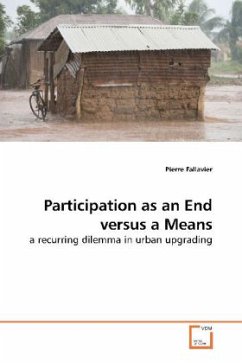Since the 1920s, participatory approaches to urban upgrading have demonstrated that involving the urban poor in the physical, social, and economic development of their settlements could improve their living conditions. These housing policies and projects have since been central to urban poverty reduction. Yet, while participatory upgrading is still used on a limited scale, it has failed to become a mainstream component of urban development. This work analyzes some reasons for that failure by investigating the trajectory of an urban poverty reduction program that had much potential for success in Cambodia, but whose results yet fell short of expectations. It connects the results to a critical analysis of international experience with policies and programs for urban poverty reduction.
Bitte wählen Sie Ihr Anliegen aus.
Rechnungen
Retourenschein anfordern
Bestellstatus
Storno








